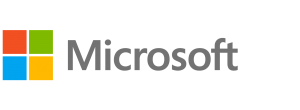Doctoral Consortium
Quick Facts
- Important Dates:
- Submission Deadline: 9 October 2015 (noon PDT).
- Notification: 24 November 2015.
- Publication-ready Deadline: 14 December 2015.
- Doctoral Consortium Days: Saturday and Sunday, 7-8 May 2016.
- Submission Details:
- Online Submission: PCS Submission System.
- Template: Extended Abstracts Format.
- Submission Content: 4 page research summary and up to 4 pages of auxiliary content. References do not count towards page length.
- Selection Process: Curated.
- Chairs: Alan Borning, Hilary Hutchinson, Yvonne Rogers (dc@chi2016.acm.org).
- At the conference: Accepted submissions will be presented at the Doctoral Consortium and as a poster at the conference.
- Archives: Doctoral Consortium abstracts will be published in the Extended abstracts; ACM Digital Library.
Message from the Doctoral Consortium Chairs
The CHI 2016 Doctoral Consortium provides an opportunity for doctoral students to explore and develop their research interests in an interdisciplinary workshop, under the guidance of a panel of distinguished researchers. We invite students who feel they would benefit from this kind of feedback on their dissertation work to apply for this unique opportunity to share their work with students in a similar situation as well as senior researchers in the field. The strongest candidates will be those who have a clear topic and research approach, and have made some progress, but who are not so far along that they can no longer make changes. In addition to stating how you will benefit from participation, both you and your advisor should be clear on what you can contribute to the Doctoral Consortium.
Alan Borning, University of Washington, USA
Hilary Hutchinson, Google, USA
Yvonne Rogers, University College London, UK
dc@chi2016.acm.org
What is the Doctoral Consortium
The Consortium has the following objectives:
- Provide a setting where students can present their work and meet other students,
- Provide feedback on students’ current research and guidance on future research directions,
- Offer each student comments and fresh perspectives on their work from researchers and students outside their own institution,
- Promote the development of a supportive community of scholars and a spirit of collaborative research, and
- Contribute to the conference goals through interaction with other researchers and conference events.
The Consortium will be held on Saturday and Sunday, 7-8 May 2016. The consortium will be a single track two-day event with about 12-15 students attending. Applicants who are selected will receive complimentary conference registration and some travel support.
Preparing and Submitting your Doctoral Consortium Proposal
A Doctoral Consortium proposal must be submitted via the PCS Submission System by 9 October 2015, noon PDT. The proposal must have the following four components, submitted as a single PDF file. Additional details about the expected content can be found here.
- Extended Abstract. A 4-page research description covering central aspects of your PhD work. Key points include:
- Your situation, i.e., the university doctoral program context in which your work is being conducted
- Context and motivation that drives your dissertation research
- Research objectives/goals/questions
- Background/literature review of key works that frames your research
- Hypothesis/thesis and/or problem statement
- Your research approach and methods, including relevant rationale
- Results to date and their validity
- Dissertation status and next steps
- Current and expected contributions
- Appendix 1. A one-paragraph statement of expected benefits of participation for both yourself and the other consortium participants (i.e., what will you contribute as well as gain) (max 1 page).
- Appendix 2. A letter of nomination from your primary dissertation advisor, that addresses the questions posed in the CHI Doctoral Consortium submission details (max 1 page).
- Appendix 3. A concise version of your current Curriculum Vita (1-2 pages).
It is essential for you to ensure that your submission is complete and in accordance with the format and content guidelines for the CHI Doctoral Consortium. Because the Doctoral Consortium Committee expects to receive a large number of applications, submissions that do not meet these requirements will be returned without review.
Doctoral Consortium Selection Process
The review and decision of acceptance will balance many factors. This includes the quality of your proposal, and where you are within your doctoral education program. Candidates who have a clearly developed idea, who are formally considered by their institution to be working on their dissertation, and who still have time to be influenced by participation in the Consortium will receive the strongest consideration. Participants in the Consortium will be selected via a curation process by the Doctoral Consortium Committee.
Although selection will take into account research quality, it will also include many external factors. The goal is to identify a set of students that will benefit significantly from the event and support each other in their growth. As a group, the accepted candidates will exhibit a diversity of backgrounds and topics. Your institution will be taken into account, where we are unlikely to accept more than two students from the same institution and almost certainly will not accept more than one student with the same advisor. Attendees from previous CHI or SIGCHI (e.g., CSCW, UIST) doctoral consortia are strongly discouraged from applying, and should clearly explain how they think attending a second related event would benefit them in a new way.
Submissions should not contain sensitive, private, or proprietary information that cannot be disclosed at publication time. Submissions should NOT be anonymous. However, confidentiality of submissions will be maintained during the review process. All rejected submissions will be kept confidential in perpetuity. All submitted materials for accepted submissions will be kept confidential until the start of the conference, with the exception of title and author information which will be published on the website prior to the conference.
Upon Acceptance of your Doctoral Consortium Proposal
Authors will be notified of acceptance or rejection on 24 November 2015.
Authors of accepted submissions will receive instructions on how to submit their publication-ready copy (which will consist of your extended abstract only), and will receive information about attending the Doctoral Consortium, preparing your presentation and poster, and registering for the conference. Publication-ready submissions are due on 14 December 2015.
Limited support for participant attendance at the consortium is provided by CHI 2016. All such benefits are contingent on attending the two-day Doctoral Consortium. Please note that submissions will not be published without a signed form releasing publishing copyright to the ACM. Attaining permissions to use video, audio, or pictures of identifiable people or proprietary content rests with the author, not the ACM or the CHI conference.
At the Conference
All participants are expected to attend all of both days of the Consortium, including a group dinner on the first evening (Saturday 7 May 2016) and a wrap-up reception on the second evening (Sunday 8 May 2016). Each student will present his or her work to the group with substantial time allowed for discussion and questions by participating researchers and other students. Although many fine pieces of work have to be rejected due to lack of space, being accepted into the Consortium is an honor, and involves a commitment to giving and receiving thoughtful commentary with an eye towards shaping the field and upcoming participants in the field.
Students will also present a poster of their work at the main conference. Please see the Information for Poster Presenters. In addition to the conference poster, each student should bring a small version of the poster (e.g., using letter or A4 paper) for sharing with faculty mentors and other students during the Consortium sessions.
DC posters will be on display for the entire conference
Specific guidelines for preparing posters
- Each poster will have a display space approximately 48 inches wide x 48 inches high. Each board holds two posters on each side, so your poster may not be any larger than these dimensions.
- Audiovisual and computing equipment will not be supplied. Power outlets will not be available. The participants may include QR codes in the poster to link to supplementary material online (such as scenario videos or interactive prototypes).
- Please note that posters must be secured with pushpins (which will be provided). If you prefer, you may also bring velcro.
The poster must include
- Title, name, school affiliation
- A concise description of the dissertation research
- Clear illustrations of key aspects of your research
- Compelling, effective visual design
Logistics for DC posters are as follows:
- The posters will be displayed the whole time, but usually authors are expected to be by their posters for one or two specified break periods so people can ask them questions
- Poster setup Monday, May 9 from 13:00 – 16:00
- Open for Monday evening reception (18:00 – 19:30), and Tuesday coffee breaks (10:50 – 11:30 and 15:50 – 16:30), as well as Tuesday lunch.
- Open for Wednesday coffee breaks (10:50 – 11:30 and 15:50 – 16:30), Wednesday lunch, Thursday morning coffee break (10:50 – 11:30) and Thursday lunch.
- Posters must be removed by Thursday, May 12 by 13:30
After the Conference
Accepted Doctoral Consortium abstracts will be distributed in the CHI Extended Abstracts, available in the ACM Digital Library.











